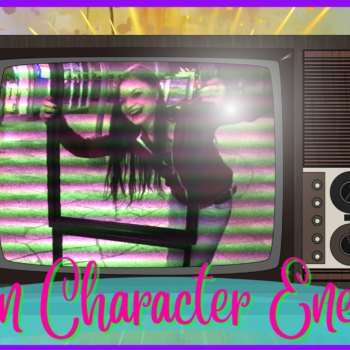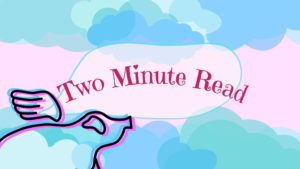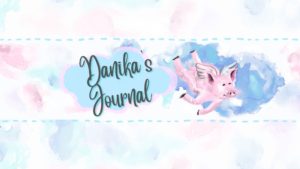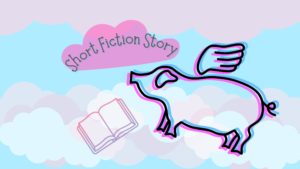
I Don’t Understand.
My dad is a wonderful conversationalist. He listens intently, is an adaptive interpreter, and is quick to fill space with witty quips that never fail to crack a smile. Sometimes, unexpectedly, he will offer an idea that provokes intense and elaborate thought. Often, the ideas he shares with me stick in my head for many years, help to shape my morals and perspectives, and shift themselves to fit and apply to my every new set of circumstances.
Once when I was in high school, my dad was giving me a ride – perhaps to school, or from a friend’s house, I do not remember exactly. I sat beside him in the passenger seat and the radio played softly in the background. A new song sounded through the stereo (I do not remember which, but I would be willing to bet it was likely Summer Love by Justin Timberlake) and with an eyeroll, I scoffed, “ugh, I hate this song.”
“Or” my dad inquired, “do you simply not understand it?”
My dad went on to explain to me that we only hate what we do not understand. We do not hate everything we do not understand, but the root of hatred stems from a lack of understanding. So, in order to hate less, we should encourage ourselves to understand more.
He explained that using the phrase “I hate” closes off and shuts down. It allows no room for interpretation or dissection, and it forces us to become strong-headed and forces our perception of the world around us to grow increasingly more static. Whereas replacing the phrase, “I hate” instead with “I don’t understand,” it opens dialogue, encourages thought, and creates a space for us to be able to learn and grow.
“What is another example of something you hate?” My dad encouraged.
“Math” I decided.
He chuckled.
“Why?” He asked.
I knew he was not looking for a loose, underdeveloped answer, and then, when put on the spot, I realized I did not really have a good answer to give. I supposed I disliked being tasked with assignments and homework, and that with who I was as a person, I was far more interested in exploring the creative and the social than I was the structured and the logical, but that did not explain why I hated math. It just explained why I preferred other things. I knew he was not looking for a loose, underdeveloped answer, but the only answer I had to give was
“I don’t know.”
“Reshape the statement” he encouraged.
“I don’t understand math” I replied reluctantly.
Yikes, I thought. I do not like that.
Probably sensing my worry, he said “perhaps you do not understand the application math offers, or the reason you are required to learn it in school.”
“Right” I agreed. That was far easier to swallow.
My dad prompted me to shift my thinking to instead explore why someone else might not ‘hate’ math. Initially, instinctively, I quoted Mean Girls.
“It is the same in every country.”
He chuckled again. “Why else?”
I looked at my dad, who in his early twenties was professionally a carpenter, and continually throughout my life, took on personal projects of the same field for our developing yard. Hammering and sawing were things he genuinely enjoyed and in order to build, he needed to understand and know how to implicate math. Math has an important role and involvement in many career paths, and it is used frequently in day-to-day activities, such as getting my correct change back after buying a poutine at lunch. Of course, I was well aware of all these things, I had even been shared these perspectives by teachers in unison to the groans of my peers who wished they were anywhere else, but it took dad showing me how to replace “I hate” with “I don’t understand” for me to apply all of these factors to my opinion of math class. Then, it was easy to realize Dad’s point; if I did not close off and shut down, I would be more willing to learn inside of class.
Dad tasked me with continuing to replace “I hate” with “I don’t understand” through the upcoming weeks and I accepted his assignment deliberately and intently. I had no idea yet how much I would learn from the shift in my words and thoughts, and how frequently and vastly applicable this idea would be in my life.

In the beginning, I found it difficult to vocalize the replacement; to instead say “I don’t understand” aloud. “I hate” is a statement that implies certainty, confidence in an opinion, and rigidity, where “I don’t understand” calls direct attention to your lack of knowledge and forces you into a position of vulnerability. Being vulnerable is always tremendously intimidating and so, “I hate” is far easier to speak out loud. In time, and with practicing replacing “I hate” with “I don’t understand”, I came to terms with the idea that my discomfort stemmed from a place of insecurity, and that insecurity, in turn, was holding me at an unreasonable expectation to be entirely knowledgeable, which is unfair to myself and is a fictitious standard to hold myself to. I realized that in order to have initiative to learn, I must first have a lack of understanding, and that there is no shame in that because it equally applies to everyone.
I noticed how different the body language was of the people surrounding me, and how different the tone of conversation would feel when I used “I don’t understand” in lieu of “I hate.” People are typically open and empathetic to vulnerability and eager to teach when given the opportunity. Everyone wants to be heard, and “I don’t understand” is often a synonym for “I want to hear what you have to say”, so using that phrase regularly opened me up to opportunities to learn and to understand more. More perspectives, more ideas, more thoughts, and more opinions.
Words and the meanings affiliated with them affect how we absorb them and so the difference in body language and tone to a room when I used “I hate” was less inviting and more uncomfortable to stew in. “I hate” doesn’t only shut down and close off an idea in yourself, but it promotes witnesses to shut down and close off as well. It immediately terminates conversation, quickly cutting off any of the winding ideas that may have stemmed from the subject and branched on through communication, and it leaves an unsettling impression on any listeners standing by. I preferred the responses I received when I chose to use “I don’t understand.”
Not only did I learn a great deal from shifting “I hate” to “I don’t understand” in my own vocabulary, but I learned to interpret other thoughts and opinions differently whenever I heard someone else say “I hate.”
When I would find myself in an emotionally embellished war with a friend of a family member that grew large enough for them to blurt “I hate you!” to me, I would instead hear, “I don’t understand you.” Which would change how I processed the attacking, angry words, and it would alter how I approached my response. It would help to lead me to find a more honest and meaningful conclusion with whomever I had been fighting with. When I would hear someone say “I hate my teacher” (or, as I developed further into adulthood, “I hate the government”) I would hear “I don’t understand the choices they are making.” That would intrigue me to learn about each opposing perspective to draw a conclusion of my own.
Along the way, I also had to learn and comprehend that “I understand” is not synonymous with “I agree” or that my understanding of someone else did not make their perspective correct. I mean to say that an idea or a perspective or an opinion or a thought can be valid while still being wrong or immoral. I needed to learn this because some altercations had me struggling to have the desire to understand the opposing point of view, and if I disallowed myself to understand, my detest for whatever scenario would continue to grow, and I would find my opinions solidifying and growing static, and the entire point of this experiment was to avoid having that happen. For example, for a very long time, I loathed people who had a pattern of executing manipulative behavior. For a long time, I viewed manipulation as the cruelest form of evil and I could not understand (see that?) the gain that manipulation had to offer. I could understand the cause for every other type of negative emotion or influence; anger was cause and effect, avoidance or ghosting was usually a deep-rooted fear of connection or commitment usually caused by a history of heartbreak, and so on – but manipulation seemed like when misused, it was just out of spirit to cause harm to someone else. I wanted to continue to hate it.

I decided to work backwards. I decided I needed to figure out why I needed to understand it. After a lot of reflective thought, I realized it was not manipulation that I hated, it was me that I disliked whenever I was fooled by it. It was the actions that I had followed through on while acting as a game piece in someone else’s game. Suddenly, there was a lot more to unpack.
I realized that the reason I needed to understand manipulation was for my own peace of mind. I needed to understand why it occurred, why someone might wish to use it as a tactic, and how it worked in order to combat the next snake who might come along and want to puppeteer me into behaving in ways that go against my own moral code. I came to the conclusion that I believe people who use manipulative tactics with intent to cause pain to someone else do so for two reasons: one – to deflect and draw attention away from their own personal defeats, and two – to gain control over something when their own lives might otherwise feel out of control. I realized that whenever I have had the tendency to fall for ill-willed manipulation, it was always at a time in my life when I, myself, was already feeling defeated, and that I would fall for the manipulation out of fear of letting down whoever was my manipulator. Understanding what might motivate the cause for manipulation made me realize that if I did not follow into it blindly, it would not push the consequences I before believed existed onto my manipulator, and that the heartbreak I was afraid to pass on was just another piece of the scam. Understanding why manipulation might exist helped me understand how to avoid it. I reframed the initial question, but I found myself with the same, valuable answer that I would have if I phrased it just the same in the first place.
Ultimately, my dad was right. After the initial “experimental period” of reshaping “I hate” into “I don’t understand” it became a pattern ingrained into me and still today, when I find myself wanting to say I hate something, I take a step back and first try to understand it. I still use the word hate, of course, but usually when I do, it is hyperbolic, or used to really underline a point instead of for its true meaning. I have found that I do hate a lot less, but more importantly, I understand a world of things that never would have occurred to me to try and comprehend had it not been for this thought exercise. Understanding ideas that I disagree with has proven to be an extraordinarily useful tool for me. It keeps me grounded and humble.

Hatred is upsetting; it promotes anger and disarray and it is clouding. Understanding is communicative and detached from resentment and rage and so often in my life, understanding a perspective I found to be morally lacking has allowed me to find the purest truth and the most universally gratifying conclusion in seemingly impossible situations that hatred would not have encouraged me to discover. Understanding has allowed me to learn that while empathy is universal, actions taken that are motivated by empathy can take many different forms, and understanding has allowed me to see where other people have acted out of empathy, whereas hatred would have had me see the same actions or choices as close-minded and/or with disturbing and spiteful intent. I hope that as I carry on through life, I continue to replace “I hate” with “I don’t understand”, because that very concept has been one of the most prominent and valuable elements of my life, and has shaped me into the compassionate, caring, forgiving, and ever-growing person that I am.
Admittedly, however, I do still hate the song Summer Love by Justin Timberlake.








Davon
Beautifully written
Danika
Thank you so much! ♡
Greg Johnson
Not much in life that’s more fulfilling than being valued as a parent. Thank you Danika. Another goody!! I really enjoy visiting your sense of reasoning!
Danika
Thank you! I’m glad you enjoyed this! & thank you for teaching me this wonderful, incredibly helpful life lesson. ♡
Trudy Taphorn
Very thought provoking….gives one much food for thought. Thank you!
Danika
Hey, thank you for reading! ♡
Don Johnson
Something that should be understood by all, but sadly is not. Another wonderful read, awesome……………
Danika
I agree; I think mindsets alike this could open the floodgates for meaningful conversation. Thank you for reading!
Isabella G
Wow, you left me speechless! Your dad is a very wise man. I used to say I hate a lot. I don’t say it much anymore, but people around me do. It’s very true we say we hate when we don’t understand. I am going to practice shifting my perspective when I say or hear someone say I hate. You have given me something to seriously ponder. On another note, your article is beautifully written.
Danika
Thank you so much! I truly appreciate this comment. I’m glad I’ve given you something to think about! I enjoy pondering alternate perspectives of the world & I’m glad I was able to influence you to do the same. ♡
hari
so much valuable life lessons to consider.
it is an awesome mindset shift that surely can have a profound positive effect in our lives.
thanks for sharing this awesome post.
cudoes to your father.
Danika
Thank you very much! ♡ I am super fortunate to have the father that I do. :]
Abdullahi Ismail
Well written .. Thrilling and entertaining, keep up the good work
I Want to Drown Him • Danika's Memory Box
[…] Danika 2 years agoFebruary 5, 2021 […]